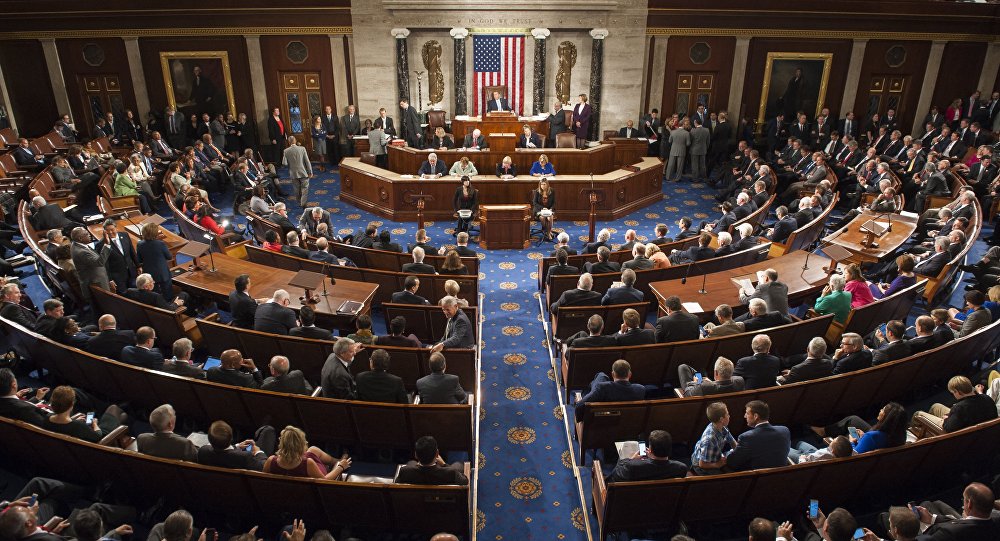
 The US House of Representatives has approved a new batch of sanctions against Russia. European Commission President Jean-Claude Juncker earlier warned of retaliation if Washington pushes ahead with new sanctions on Russia that may hit European companies. Sputnik asked Paris-based analyst Francis Perrin about the EU’s possible response.
The US House of Representatives has approved a new batch of sanctions against Russia. European Commission President Jean-Claude Juncker earlier warned of retaliation if Washington pushes ahead with new sanctions on Russia that may hit European companies. Sputnik asked Paris-based analyst Francis Perrin about the EU’s possible response.
The legislation aims to introduce individual sanctions for investing in Russian energy projects. It also outlines steps to hamper the construction of Russian company Gazprom’s Nord Stream 2 gas pipeline project.
European companies, including France’s Engie, could face serious fines for participating in the construction of the Nord Stream 2 pipeline.
In an interview with Sputnik France, Francis Perrin, an expert with the Paris-based Institute for International and Strategic Affairs (IRIS), outlined four scenarios of a possible EU response to the US move. He added, however, that each such response would require unanimous approval by all 28 EU member-states.
"The first such scenario could replicate what the EU earlier did in response to the US move to punish foreign companies investing in Iran’s oil and gas sector," Perrin said. "The EU then demanded that Washington not punish European companies, in exchange for certain concessions on their part."
He added that in the second scenario the EU could pass legislation to block US sanctions.
"Third, it could introduce its own retaliatory measures on US companies.”
"And, lastly, the EU could ask the World Trade Organization to set up a working group to examine the matter so that the WTO could declare the US sanctions null and void and introduce countersanctions,” Francis Perrin noted.
He added that before any of these options is implemented, the EU countries would have to leave their divisions behind and "tell the US loud and clear that the EU stands united against future or possible US sanctions.”
The House of Representatives has voted overwhelmingly to pass new sanctions against Russia, and require congressional approval before US President Donald Trump can ease or remove existing ones. The bill also includes sanctions against Iran and North Korea
Lawmakers voted 419-3 to approve legislation seeking to punish Russia over a host of issues, including its alleged meddling in the 2016 presidential election, its support for the Syrian government and alleged support for the rebels in Ukraine, as well as Crimea’s accession to Russia.
Several European nations including Germany and Austria fear that the new law would penalize companies working on pipelines from Russia by limiting their access to US banks.The provision could pave the way for sanctions against the European partners in Nord Stream 2, a project to build a pipeline carrying Russian gas across the Baltic which could boost supplies to Germany from 2019.
In April, Gazprom's subsidiary Nord Stream 2 AG signed a deal with French Engie, UK’s Royal Dutch Shell, Austria’s OMV and Germany's Uniper and Wintershall, which agreed to provide partial long-term financing of the gas pipeline project, estimated at 9.5 billion euros ($10.6 billion).
On June 15, the US Senate approved new sanctions against Russia, in particular, against large investors in the construction of Russian export pipelines or those providing such projects with services, technology and information support.
Until now, the US and the EU had agreed that sanctions would not affect Europe's gas supply.



_jpg/250px-ElbeDay1945_(NARA_ww2-121).jpg)





